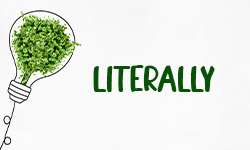
Many people frequently look up the meanings of English words and phrases to gain a better understanding of them. Unfortunately, they sometimes misuse common words because they are not fully aware of their actual definitions or origins, resulting in occasional spelling errors. This article intends to explain the term “literally” by offering details on its correct spelling and historical background.
Definition of “literally”
“Literally” is an adverb used to emphasize that something is exact or occurs as described, without exaggeration or metaphor. It is often employed to assert that words or expressions should be interpreted in their real or original sense and not figuratively or symbolically. For example, if you say, “I literally jumped out of my skin,” you mean to stress your reaction, though it’s often used hyperbolically in casual speech.
Use of “literally” in a sentence
The word “literally” functions grammatically as an adverb in English, serving to modify verbs, adjectives, or other adverbs, typically by intensifying the expression to signify that something is true in a strict sense, without metaphor or exaggeration. However, in informal speech, it is often used for emphasis or as a hyperbole, even when describing figurative situations. Here are three short example sentences illustrating the use of “literally.”
How to spell “literally” correctly
“Literally” is sometimes misspelled in various ways, with common errors including “litterally,” “litteraly,” and “literaly.” The only correct spelling is “literally.”
The earliest recorded instance of the word “literally” dates back to the 15th century, specifically the 1530s, where it was employed to mean “in a literal sense or manner.” Its usage as an intensifier to emphasize figurative expressions began in 1769, highlighted when Frances Brooke wrote the following sentence in his work “The History of Emily Montague”:
-
“He is a fortunate man to be introduced to such a party of fine women at his arrival; it is literally to feed among the lilies.”
Correct spelling
literally
Wrong spelling
litterally
litteraly
literaly
Synonyms for “literally”
Expanding your vocabulary by adding synonyms for “literally” can enhance communication, reduce repetition and redundancy, tailor language to different audiences or contexts, and bring stylistic variety to your writing.
| Synonym | Example |
| Actually | I literally saw the celebrity at the cafe. |
| I actually saw the celebrity at the cafe. | |
| Precisely | The instructions were followed literally, just as written. |
| The instructions were followed precisely, just as written. | |
| Verbatim | He quoted the poem literally during his speech. |
| He quoted the poem verbatim during his speech. |
FAQs
“Literally” is an adverb used to indicate that something is exactly true as stated, without exaggeration or metaphor.
“Literally” is used to emphasize the truth and accuracy of a statement or to assert that something happened just as it is described. It is also commonly used informally as an intensifier for figurative expressions.
When someone speaks “literally,” they are asserting that their words should be taken at face value, exactly as they are stated, without any implied metaphor or exaggeration.
“In a literal sense” means adhering strictly to the original meaning of the words, without interpretation or exaggeration, focusing on the factual or primary meanings of the expressions used.
Printing Your Thesis With BachelorPrint
- High-quality bindings with customizable embossing
- 3D live preview to check your work before ordering
- Free express delivery
Configure your binding now!